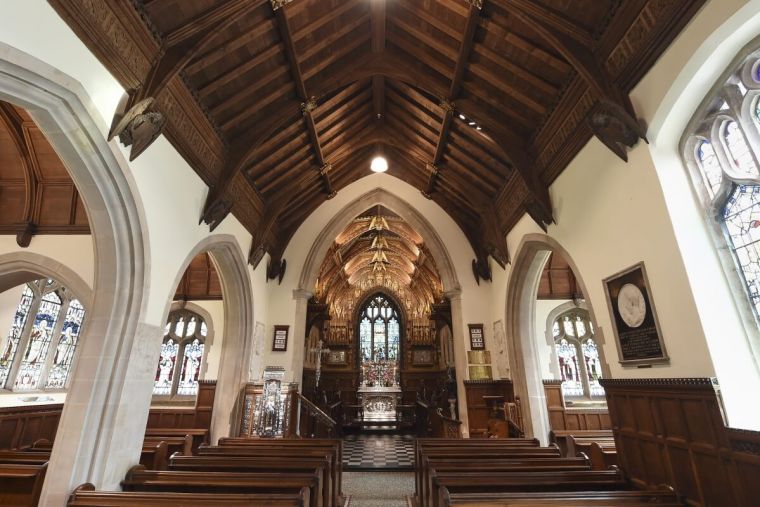Does the rise of the 'nones' mean the end of the Church?
Is the Church in the UK on its last legs? Judging by the wailing and gnashing of teeth on social media following the latest British Social Attitudes survey release, you'd think so. The number of Brits describing themselves as having no religion at all is at its highest ever level, and the number describing themselves as Anglicans has also dropped, to 15 per cent – half what it was in 2000.
So, is it on its last legs?
The operative words here are 'describing themselves'. The survey is about how people think of themselves, not what they actually do. It doesn't measure churchgoing, or prayer, or Bible reading. So while it is informative, to a degree, it is not definitive. It doesn't tell us how many Christians there are in the country – or how many Anglicans – it just tells us how people describe themselves.

But it's not great news, is it?
Not particularly. But while it's perfectly legitimate to highlight this fall, it needs to be seen against last year's BSA figures, which actually showed a rise in the number of Christians, and a fall in the number of those saying they had no religion. The latter led to a cautious headline in Christian Today asking, 'Could the decline in Christianity be coming to a halt?' Too soon to say, was the overall conclusion. That is still the case.
So why the rise in the 'nones' – and the fall in Anglicans?
The BSA survey is perfectly legit, but it's a bit of a blunt instrument. It selects 2,942 random adults and conducts an hour-long interview with a gazillion questions. One of these is, 'Do you regard yourself as belonging to any particular religion? IF YES: Which?' But what does 'Belonging to' mean? The fact that the same question's been asked since the survey began in 1983 doesn't necessarily mean it will be answered in the same terms.
Can you expand...?
The public's perception of religion has changed a lot since 1983. Even then, 'CofE' was the default option for people who didn't go to church and weren't really bothered about religion. Since then there's been a rise in evangelical power. Evangelicals are very insistent on defining who is a Christian and who isn't, because if you don't know you can't convert them. So arguably, in terms of these numbers, they are victims of their own success – it might be that people are getting the message. But there have also been huge shifts in public morality, regarding sexuality and gender. The Church has in general resisted them, so people who might have been vaguely happy with the label 'Christian' or 'Anglican' are being forced to pick a side, and they aren't sticking with the brand. There's also the timing of the survey, between July and October 2016 – peak presidential election time in the States, when religion was a particularly toxic factor. Who'd want to be associated with that?
So it's Trump's fault?
No, of course not. But 2,942 is not a very large number, and it only needs a few people to shift for the overal picture to be changed.
But the picture has still changed.
Yes, and that isn't insignificant. If someone feels a certain loyalty to or identification with a particular faith, even if they don't practise it to any meaningful extent, it shapes how they might be approached by Christians wanting to share the gospel and bring them into a relationship with Christ and his Church. If they don't, the strategy may be different. So this survey is helpful to that extent.
It seems to be young people in particular who don't want the 'Christian' label.
Indeed – just three per cent of those aged 18-24 described themselves as Anglican, compared to 40 per cent of those aged 75 and over. On the other hand, a ComRes survey released in June found one in five young people describe themselves as 'active followers of Jesus'. That figure has to be treated with caution, as Christian Today's Martin Saunders said – but that's sort of the point. It's about definitions, how people describe themselves, labels and perceptions.
So the BSA survey isn't quite as apocalyptic as we might think? Phew.
No, it isn't. But the gradual drifting apart of Church and society brings its own problems, and by other measures – attendance at worship, age distribution and geographical distribution, for instance – things still look a bit perilous. We shouldn't minimise the challenges.
But it will be OK in the end?
Of course. Different, but OK.
Follow Mark Woods on Twitter: @RevMarkWoods











